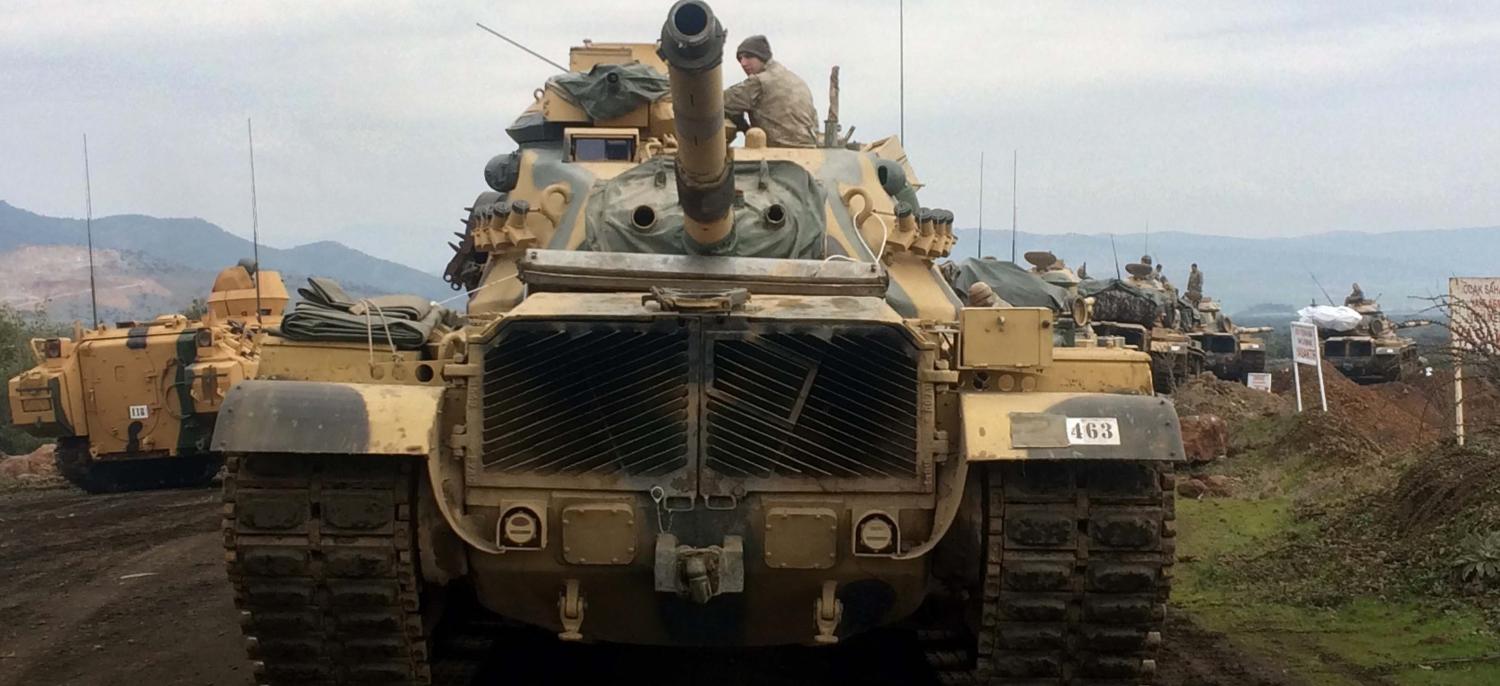With the change of administration in Washington came new clarity about US policy on Syria. The admirable, short-term aim was to defeat ISIS.
The Syrian Democratic Forces (SDF), the organisation that would produce this outcome on the ground, was founded in late 2015 (the 'Democratic' in the name gives the appearance of inclusiveness, and downplays Kurdish dominance). The US provided support to retake ISIS-held territory in Syria, and local commanders were given greater freedom by Washington to conduct operational manoeuvres.
At the tactical level, it was a resounding success, with both Raqqa and Deir ez-Zour falling to the SDF and, in the case of parts of Deir ez-Zour, to the Syrian military. How the US enabled its indigenous partner to defeat ISIS on the battlefield will rightly form the basis of many lectures in staff and war colleges. It was, by any measure, a successful intervention at the tactical/operational level in a complex environment.
The post-ISIS phase was always going to be more difficult. The US has several thousand troops deployed in north-east Syria who support the SDF. But their post-ISIS purpose was never clear.
In a speech delivered last week at Stanford University on the administration's Syria policy, US Secretary of State Rex Tillerson outlined the five key strategic outcomes Washington seeks to achieve: the enduring defeat of ISIS and al-Qaeda in Syria; resolution of the conflict through a UN-led political process, leading to a stable post-Assad government; diminishing Iranian influence in Syria; the voluntary return of refugees; and the elimination of weapons of mass destruction. Tillerson argued that a key element included a continued US military presence, with any steps towards withdrawal based on an assessment of conditions as they unfold, rather than according to an arbitrary timeline.
From a negotiator's viewpoint, the lack of a timeline is good, but only if the parties you're dealing with know you have significant leverage to exert. The challenge for Washington's Syria policy all along has been its lack of strategic levers.
Russia has history, a defence pact, and close political relations with Damascus. Iran has more recent strategic links, growing commercial interests, and controls thousands of pro-Tehran militias in addition its own troops across the country. Turkey has massive commercial links, hosts hundreds of thousands of Syrians within its country, and has an 800 kilometre-long border with Syria. For Washington, the Kurdish-dominated SDF is a successful tactical partner, but a bit of a dead weight strategically.
That the Kurds are a burdensome ally in Syria, and Washington has thought little about a post-ISIS Syria policy, was hinted at last week when a spokesman announced the formation of a 30,000-man border security force. The Turkish reaction to a US-trained and supported Kurdish security force on its Syrian border was predictable. The government conveyed its displeasure when the US chargé d'affaires was called in by Ankara, and Turkish media portrayed the US military and the CIA as creating a Kurdish terrorist 'North Army' on its border.
Tillerson tried to repair the damage, claiming the US wasn't creating a border force and that the situation had been misrepresented. But if this piece from a journalist who attended an SDF graduation ceremony two days ago is correct, Washington's message does not appear to have reached the local Kurds.
The Turkish government has now signaled its dissatisfaction to Washington in a more pointed way. Last week, the Turkish military attacked Kurdish forces in Afrin, well to the west of the US-supported forces. The move came as little surprise after Ankara linked the action to Washington's support for a Kurdish-dominated force in Syria's east.
Governments are urging restraint on all sides, but the reality is that no one will come to the aid of the Kurds, just as they didn't last year when the Iraqi government seized back control of Kirkuk after the Iraqi Kurds' ill-advised referendum on independence. In the world of realpolitik, sovereignty always trumps friendship.
The Turkish incursion simply highlights the problems that any Washington policy on Syria will face once the mission to defeat ISIS concludes. The allied force Washington has assembled is an amalgam of different ethnic and tribal groups, all of which know that US forces will have to leave eventually. The allied force's propensity to fragment, as the Syrian Government and its allies negotiate directly or indirectly with its separate elements, is high.
Washington's enemies can use proxies to target US troops, increasing the pressure to leave. Kurdish forces are seen by Washington's NATO ally to the north as little more than the Syrian branch of the Kurdistan Workers' Party (PKK), a proscribed terrorist group. Ankara may engage the SDF further to the east in areas under US protection, threaten to expel the US from its Incirlik Air Base, or worse.
At the same time, Russia and its allies have been leading the diplomatic race in an attempt to broker a solution that can be rubber-stamped by the UN.
Washington has few non-financial levers of influence in Syria. With a weak hand to play, the lack of timeline may be more hindrance than help if domestic pressure builds in the face of US casualties and a partner force that fragments or threatens to prompt further action from Turkey.
If this week has already taught us one thing, it's that US policy in Syria is full of holes.

